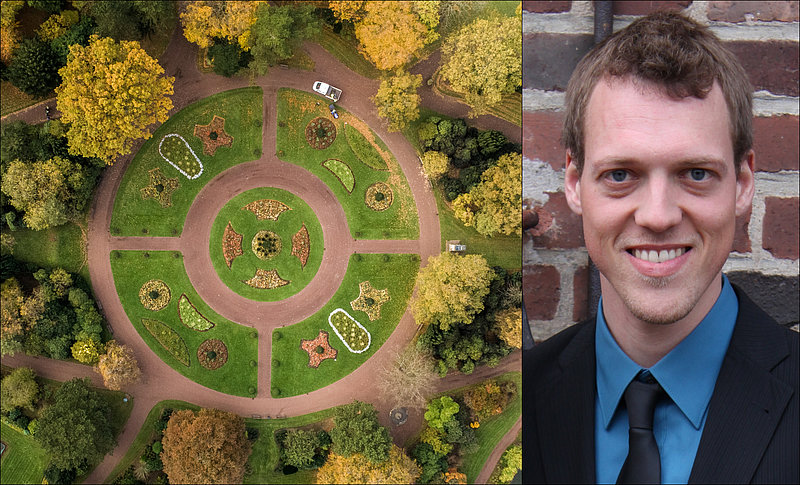- Till, your work as a supervisor was awarded the Christian Patermann Prize. What is the secret of good supervision? What is important when helping doctoral students on their way to a dissertation?
First of all, of course, it depends on the academic work. To advise them, that is the obvious role of the supervisor. The important thing is that a dissertation comes out in the end. That sounds obvious at first, but it's not. That's why I bring it up at regular intervals. All too often, young academics are so engrossed in their projects that they lose sight of steering them in the right direction so that after three years they have a good dissertation.
At this point, at the latest, the interpersonal aspects also come into play. We meet every two to three weeks, not only to acknowledge progress, but also to address possible problems from the beginning. If you wait too long, it's often difficult to iron them out within the given time frame. And that is why - as simple as it sounds - it is important to take your time.
- In the praise of the award, it also says that interdisciplinarity is in the foreground. How does that show in your work?
Almost all of them have cooperation partners from other fields. They get out of their home labs, in most cases they can go abroad, or at least to another lab. And there they are not just "spectators", but participate in the research projects. That may be a bit more work than working alone on your own dissertation, but the experience is worth it.
In addition - and this is where it starts to become not so natural among supervisors - it is important to have a certain empathy and to perceive where the doctoral student is at the moment, even away from direct communication like conversations. Of course, it helps to remember your own dissertation.
- It all sounds as if the dissertation in biology is once again particularly important.
The impression is correct. In some fields it's enough to have a bachelor's degree to get a job, but in most biology fields a doctorate is expected. Then you get a job without a problem, and without praising ourselves now, I know from experience that all our doctoral students even get very cool and sought-after jobs, for example at big companies like BASF or Evonik. That is another seal of quality for our education and ultimately also for the MIX-UP research project.
- The bioeconomy, under which the prize is awarded, is a comparatively young field in biology. What is the situation there?
You have to differentiate here, the bioeconomy has actually been a topic for a long time, but it has only been seen and discussed so much by the general public for a few years in the context of the big topic of the circular economy. This has also given it another boost in biology itself; companies are becoming more involved with it and jobs are being created as a result.
- Speaking of companies and industrial partners, they are of course always looking for qualified young people: As an educational institution, how do you manage the balancing act of maintaining good contacts with industry on the one hand and focusing on critical, independent science on the other?
It depends on the distinction between applied science and basic research. For us, applied research is clearly in the foreground. That means that we want to create a concrete added value in a more or less everyday context - and that's why it's also okay for us to have some contacts with industry and big biotech companies, as long as it doesn't get out of hand. Not to mention that it's also a great sense of achievement for young scientists to see their own research being scaled up at companies. That is motivating!
- Till, thank you for the interview!


